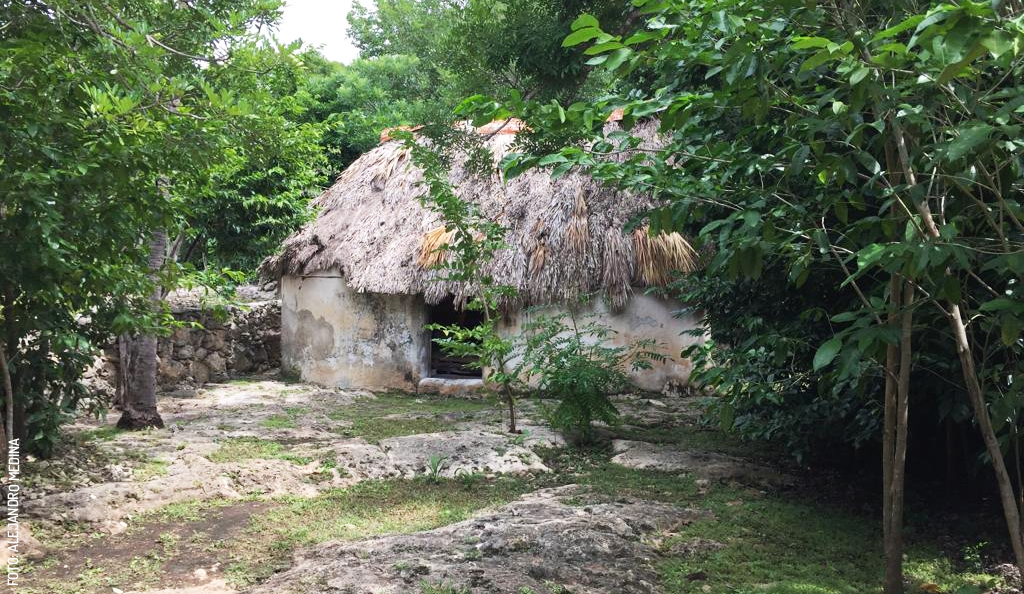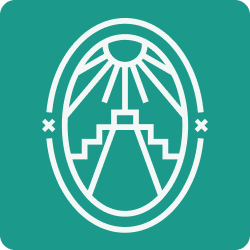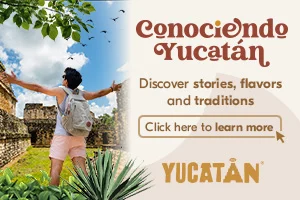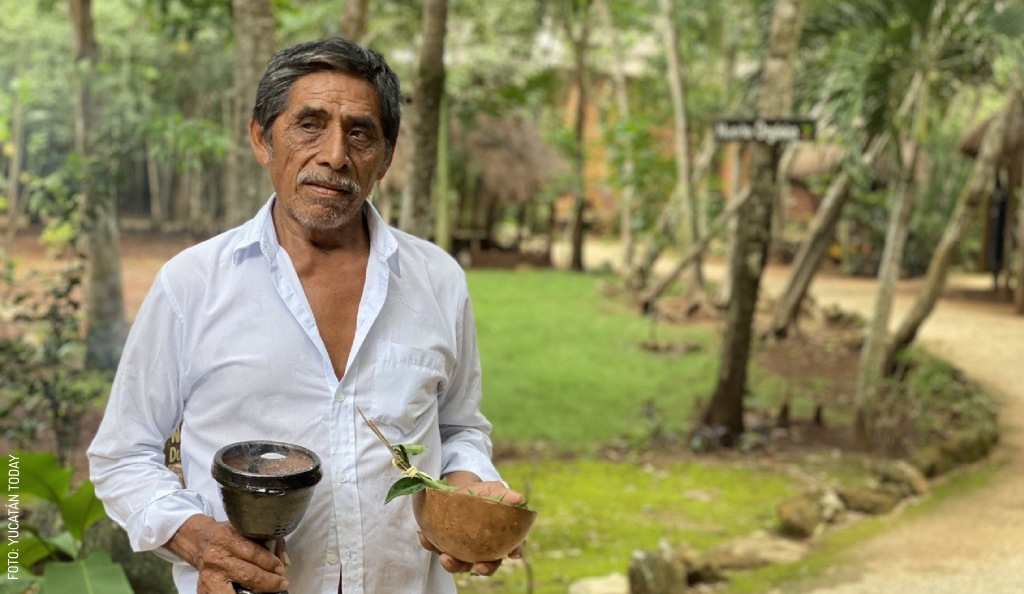
Guardians of the Invisible: the J-meenes or Maya Medicine Men
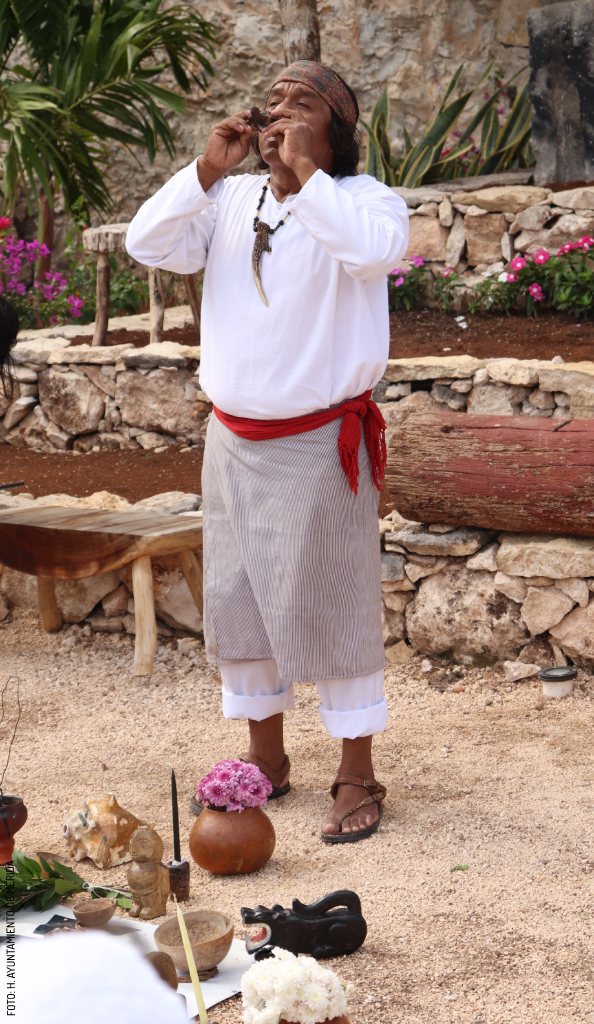 Chaos exists, but the world always tends to seek balance, and tends to find it. This is the foundation of life; the reason rivers can flow, and why harvests arrive in time. Today I’d like to tell you about some of the guardians who contribute to maintaining this natural balance: the J-meenes.
Chaos exists, but the world always tends to seek balance, and tends to find it. This is the foundation of life; the reason rivers can flow, and why harvests arrive in time. Today I’d like to tell you about some of the guardians who contribute to maintaining this natural balance: the J-meenes.
The Maya word J-meen (or h-men, as the old spelling went) is pronounced very similar to the English word men, but with an almost silent H sound (the Spanish J sound) at the beginning. While the Maya plural would be J-meno’ob, J-meenes is the Spanish plural that most people in Yucatán would be familiar with.
The most common definition of J-meenes, often appearing at the top of internet searches, portrays these traditional healers as wise men, wizards, or healers, well-versed in local herbal knowledge. Another way to name them would be 'Maya priests capable of using the Sáastun or divination stone to cure spiritual ailments.' Although there's no reason to discredit the readily available information found on Wikipedia, today I want to share with you how a J-meen defines himself.
Juan Lavadores Canto, born in Oxkutzcab, Yucatán, in 1939, is a J-meen who has been collaborating with the Intercultural Maya University of Quintana Roo since 2007. With the help of Professor Francisco J. Rosado May, Juan provided a written testimony about his life as a J-meen, which is available for free as part of the publication 'Sin memoria no hay historia” (Without Memory, There Is No History), published by Glocal Bej A.C.
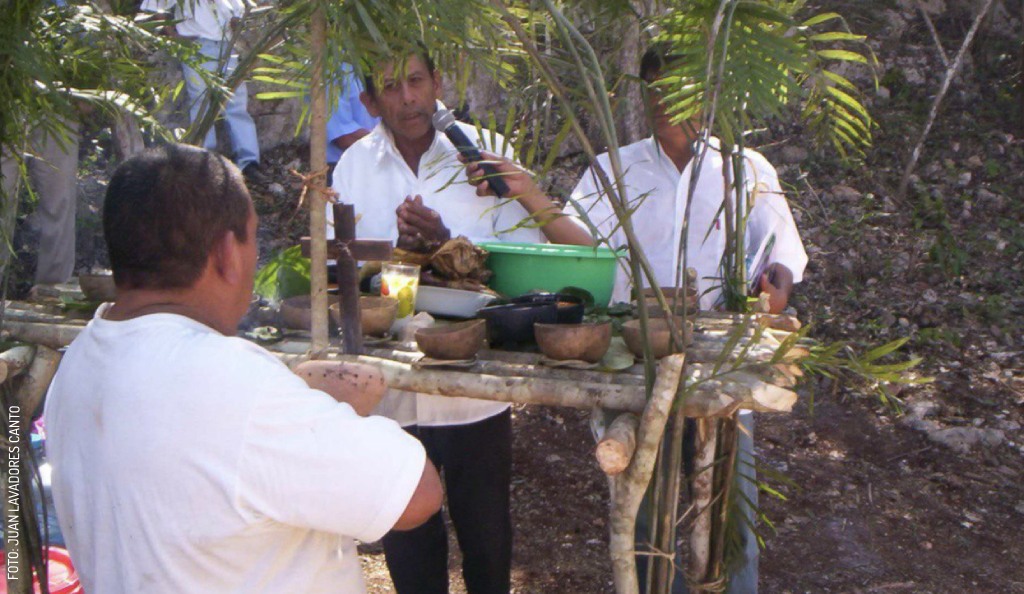 To be a J-meen, in Juan's words, means finding peace between the visible and invisible aspects of the world. I'm sure you'll agree with me that there are things in this reality that neither science nor our eyes can observe. Additionally, J-meen provide services such as Waajil Kool or presenting the first fruits of the milpa, Jets’ Lu’um (calming the land), Jo’olche’ (expressing gratitude for the initial harvest), Looj (ensuring community protection), and Ch’a Cháak , a ritual to request rain or simply to seek blessings and offer a harvest to the "true owners" of the land. This is a recurring service when lands are sold to people outside Maya communities for constructing new buildings.
To be a J-meen, in Juan's words, means finding peace between the visible and invisible aspects of the world. I'm sure you'll agree with me that there are things in this reality that neither science nor our eyes can observe. Additionally, J-meen provide services such as Waajil Kool or presenting the first fruits of the milpa, Jets’ Lu’um (calming the land), Jo’olche’ (expressing gratitude for the initial harvest), Looj (ensuring community protection), and Ch’a Cháak , a ritual to request rain or simply to seek blessings and offer a harvest to the "true owners" of the land. This is a recurring service when lands are sold to people outside Maya communities for constructing new buildings.
It is known and observed that if these ceremonies and offerings are not performed, the endeavors on these lands are often doomed: animals are lost, family and community problems come up, and many other challenges arise. This is why people continue to seek their services, even as this legacy disappears at an increasingly accelerated pace.
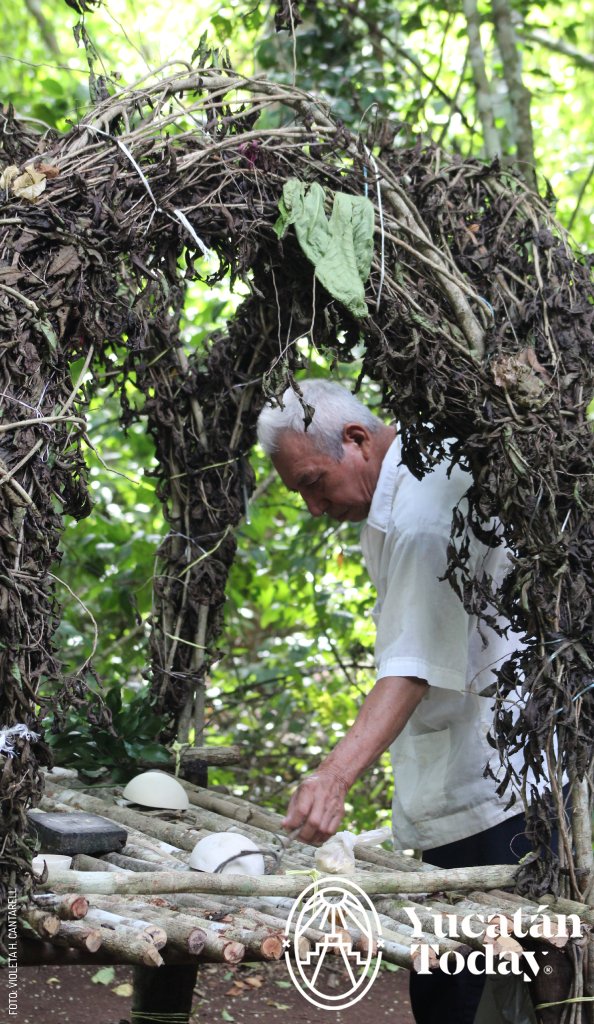 The choice of younger generations to pursue higher education in cities creates a challenge for Juan to teach his son or any other young person this ancient profession. For centuries, this (passed down from generation to generation) was one of the ways in which J-meenes acquired their knowledge.
The choice of younger generations to pursue higher education in cities creates a challenge for Juan to teach his son or any other young person this ancient profession. For centuries, this (passed down from generation to generation) was one of the ways in which J-meenes acquired their knowledge.
However, another way to attain this gift is through divine choice. In these cases, the J-meen's destiny is revealed through dreams or experiences as mystical as they are real, just as it happened to Juan, who was instructed by a mysterious man who appeared to him in the milpa one ordinary day when he was a child.
The case of Juan Lavadores Canto is special because, even though J-meenes are present in almost all Maya communities, they usually do not deliberately share their identity and knowledge with strangers. In fact, if you were to see one on the street, you wouldn't even realize it, as their demeanor and clothing make them appear like any other gentleman from their community.
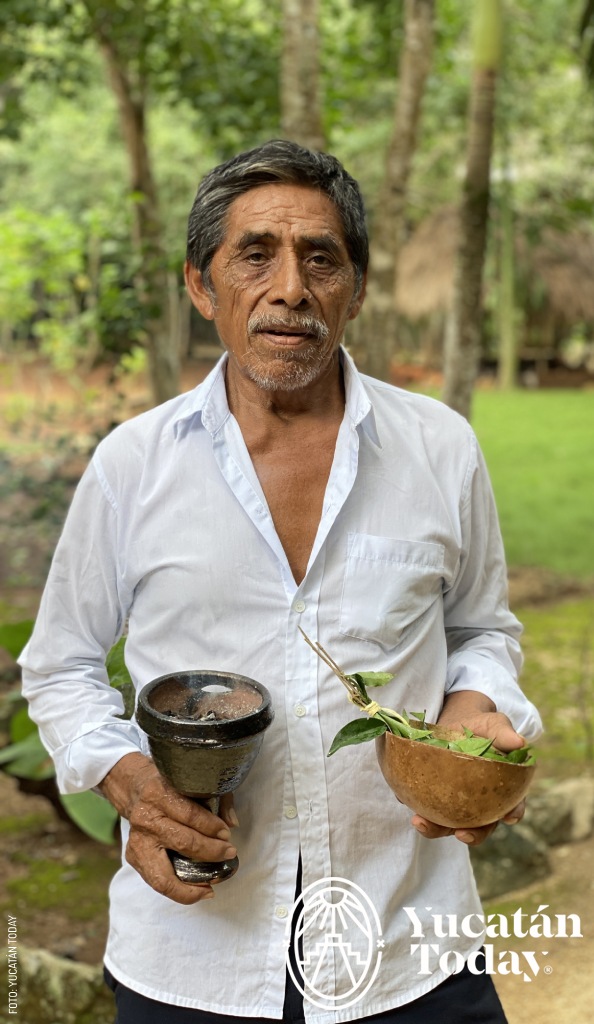 Their identity will only be revealed to you when you see one at work. When in rituals they recite the right prayers, request the exact number of chickens for the offering, or when, in an almost unreal kindness, they instruct their assistants on how to prepare Piim or thick tortillas for the crop-opening ritual. Only then will you know when you are in the presence of a genuine J-meen. When, after their work, the land finally finds its peace.
Their identity will only be revealed to you when you see one at work. When in rituals they recite the right prayers, request the exact number of chickens for the offering, or when, in an almost unreal kindness, they instruct their assistants on how to prepare Piim or thick tortillas for the crop-opening ritual. Only then will you know when you are in the presence of a genuine J-meen. When, after their work, the land finally finds its peace.
In addition to the J-meenes, there are other traditional Maya healers, such as the Pul Ya’ajo’ob (sorcerers), J-ts’aako’ob (healers), or the more well-known shamans. Like the J-meenes, in the original cultures around the world, there are hundreds of names for individuals capable of seeing the invisible. Different names, same gift. This, more than a coincidence, only reaffirms the vast number of the universe's secrets that still remain hidden from the eyes of humanity, or at least, from the majority of it.
Photography by H. Ayuntamiento de Mérida, Violeta H. Cantarell, Juan Lavadores Canto and Yucatán Today for its use in Yucatán Today.
Sources:
Rosado-May, Francisco. (2018).
UN JMEN COLABORANDO CON LA UNIVERSIDAD INTERCULTURAL MAYA DE QUINTANA ROO.
https://www.academia.edu/38020467/
Vera-Ku, Blanca. (2019).
Medicina tradicional maya-yucateca.
https://bit.ly/1902mvk
¿Enamorado de Yucatán? Recibe en tu correo lo mejor de Yucatán Today.
No te pierdas nuestros mejores artículos y la edición digital cada mes antes que nadie.
Related articles
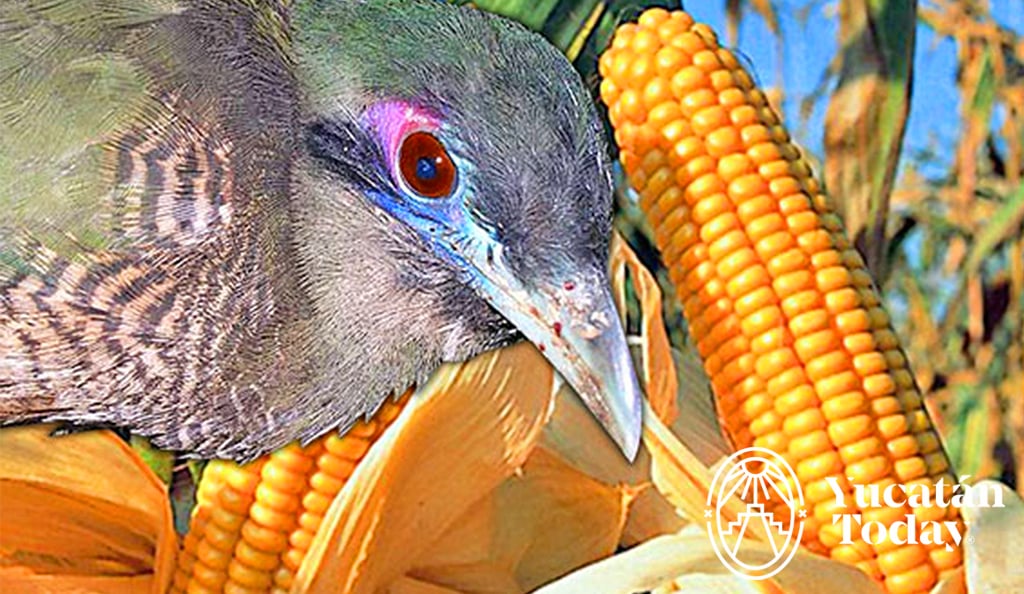
Maya Myths: Dziu and the Corn
When life was just beginning in the land of the Maya, the Dziú bird had multi-colored feathers and its chestnut brown eyes danced against its...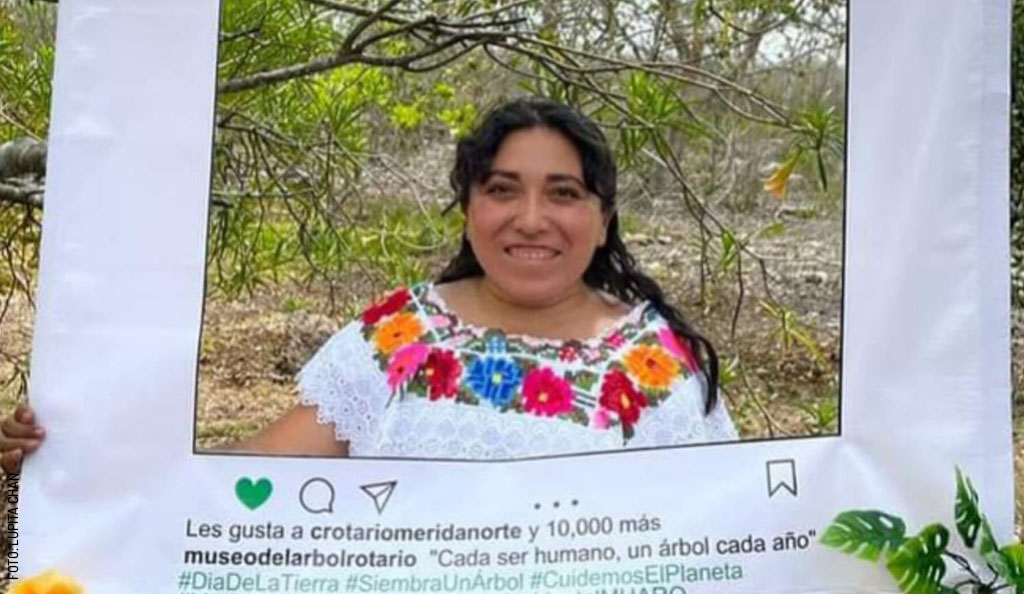
The Poetry of a Maya Woman: Lupita Chan
Everyone has a language of their own, which means that everyone can create poetry. Among those who make and work with words are the strong,...